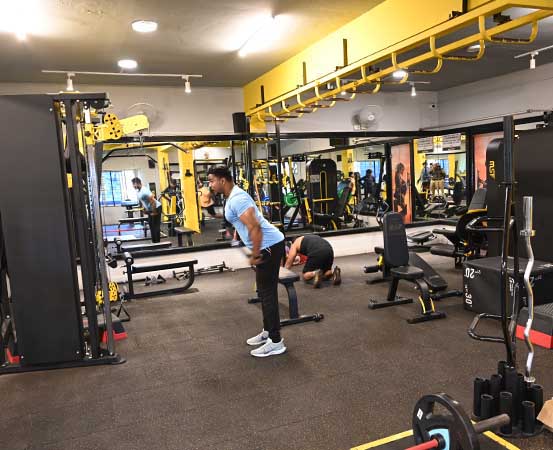
Everything was going your way – the training routine and diet – and you were constantly pushing yourself to improve performance and maximise gains. But then, out of the blue, things took a turn. No matter how hard you pushed or how differently you trained, there was no improvement, or rather, the performance began a downward spiral. In that case, chances are that you may have inadvertently stepped into the overtraining zone and could be suffering from overtraining syndrome (OTS).
This is common among professional athletes. It can affect fitness enthusiasts and gym-goers as well. Rest is key in overcoming overtraining syndrome, which can linger on for months, jeopardising careers of athletes.
Symptoms of overtraining syndrome
The European College of Sports Science classifies overreaching (accumulation of training load that leads to performance decrements) into three types. The first, functional overreaching, is caused by increased training and leads to a temporary performance decrement, lasting for a few days to few weeks. However, the performance improves after rest. Non-functional overreaching, the second type, is triggered by intense loading and leads to a longer performance decrement that lasts months. The third type, which leads to overtraining syndrome, is called extreme non-functional overreaching. This puts additional stress on the body and causes performance decrement for a longer duration.
The common symptoms of overtraining syndrome include fatigue, depression, bradycardia, loss of motivation, insomnia, irritability, hypertension and restlessness. The uncommon symptoms are anorexia, weight loss, lack of mental concentration, stiff muscles and anxiety.
How to overcome overtraining syndrome
“Overtraining is something which can’t be identified easily as a player maybe playing good but he/she maybe going into the overtraining zone,” says Pushpendra Singh, fitness coach of I-league (Indian football’s second-tier competition) club Rajasthan FC. “The first thing is to identify the symptoms, as the common perception ‘the more you train, the better you get’ is not correct.”
Singh gives an arbitrary example of how to monitor if a person is hitting the overtraining zone through resting heart rate.
“A person wakes up in the morning and the resting heart rate is measured as 60 beats per minute,” elaborates Singh. “Now, if that person wakes up the following day after training and going to sleep, and the heart rate is increased by more than six beats per minute, then it is a symptom that the person has overtrained. So, monitoring heart rate is the best way to prevent overtraining. The body automatically gives signal and cues if the person has been overtraining for a long period.”
Rest is the only solution to pull a person out of overtraining syndrome. The process can last anywhere between six months to two years, depending on the severity.
The issue of overtraining is prevalent in the amateur sports arenas and among fitness enthusiasts who want to push their limits.
“If the performance is monitored every day, the chances of going into the overtraining zone decreases. Age also plays an important role as the catabolic process starts post 30s. So, chances of going into the overtraining zone increases as one ages,” adds Singh.
Takeaways
- Overtraining syndrome for long periods causes performance decrement. Rest is key, and the recovery can last for several months.
- Monitoring the heart rate on a regular basis is an effective way to ensure you are not hitting the overtraining zone. An increase in the resting heart rate by more than six beats per minute is a sign of overtraining or overreaching.
- The chances of going into the overtraining zone increases with age.

















